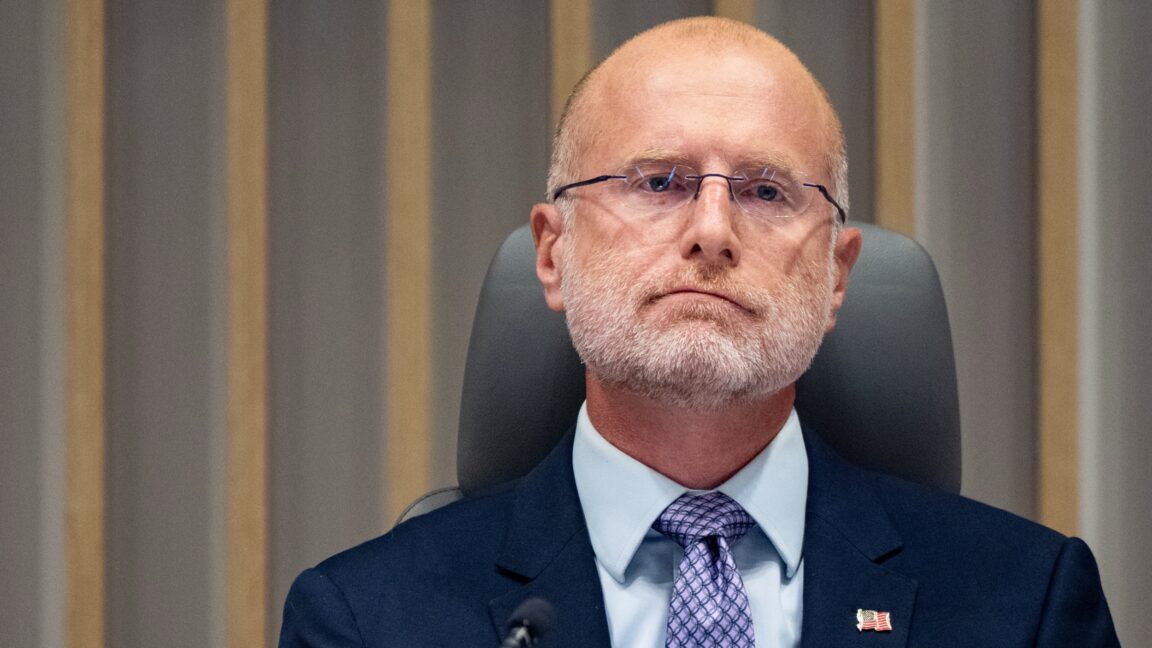
trump health official ousted after allegedly giving Steven Hatfill, a senior advisor for the Department of Health and Human Services (HHS), was terminated over the weekend amid allegations of misconduct, including giving himself an inflated title and failing to cooperate with leadership.
trump health official ousted after allegedly giving
Background on Steven Hatfill
Steven Hatfill has been a notable figure within the HHS, particularly during the Trump administration. His background includes a medical degree and a history of involvement in public health and biodefense. Hatfill gained some notoriety in the early 2000s due to his connection to the anthrax attacks, which led to a lengthy investigation that ultimately cleared him of any wrongdoing. His career has been marked by both scientific contributions and controversies, making his recent dismissal a focal point in discussions about leadership and accountability within government health agencies.
Details of the Termination
Hatfill’s firing was first reported by Bloomberg, which indicated that his dismissal was primarily due to his self-appointment to a title that was not officially recognized by the department. Reports suggest that he referred to himself as a “senior advisor” with additional qualifications that were not sanctioned by HHS leadership. This act of self-inflation raised eyebrows among colleagues and superiors, leading to questions about his credibility and authority within the organization.
Allegations of Misconduct
In addition to the inflated title, Hatfill faced accusations of not cooperating with HHS leadership. Cooperation among staff is crucial in any government agency, particularly in health-related departments where decisions can have far-reaching implications for public health policy and safety. The lack of collaboration can hinder the effectiveness of the agency, especially during critical times such as public health emergencies.
Hatfill’s Response
In response to his termination, Hatfill spoke to The New York Times, claiming that his ouster was part of a larger conspiracy to undermine Health Secretary Robert F. Kennedy Jr., who has been a controversial figure due to his anti-vaccine stance. Hatfill alleged that the coup was orchestrated by Matt Buckham, Kennedy’s chief of staff. However, he did not provide any concrete evidence to support his claims, leaving the allegations somewhat ambiguous.
Official Reactions
The HHS spokesperson responded to Hatfill’s claims by stating that “firing a staff member for cause does not add up to a coup.” This statement underscores the department’s position that Hatfill’s dismissal was based on legitimate concerns regarding his conduct rather than any political maneuvering. The spokesperson’s remarks aim to clarify the situation and reinforce the idea that accountability is essential within government agencies.
Implications for HHS Leadership
Hatfill’s termination raises important questions about leadership and accountability within the HHS. The department has faced scrutiny in recent years, particularly during the COVID-19 pandemic, where effective leadership and clear communication were paramount. Instances of misconduct, such as Hatfill’s alleged self-aggrandizement, can undermine public trust in the agency and its ability to manage health crises effectively.
Political Context
The political landscape surrounding health agencies has become increasingly polarized, particularly with figures like Robert F. Kennedy Jr. at the helm. His controversial views on vaccines have drawn both support and criticism, creating a challenging environment for those working within the department. Hatfill’s claims of a coup suggest a deeper rift within the agency, potentially affecting its functionality and public perception.
Stakeholder Reactions
Reactions to Hatfill’s termination have varied among stakeholders. Public health advocates may view the dismissal as a necessary step toward restoring integrity and accountability within the HHS. Conversely, those aligned with Kennedy’s views may see Hatfill as a victim of political maneuvering, further complicating the already contentious atmosphere surrounding health policy.
Public Health Community
Members of the public health community have expressed concern about the implications of Hatfill’s firing. Many emphasize the importance of maintaining a professional and cooperative environment within health agencies, especially during times of crisis. The public’s trust in health officials is crucial for effective communication and adherence to public health guidelines, making accountability a key issue.
Political Analysts
Political analysts have noted that Hatfill’s allegations of a coup could reflect broader tensions within the Trump administration’s approach to health policy. The administration has often been characterized by internal conflicts and differing ideologies, particularly regarding public health measures. Analysts suggest that Hatfill’s dismissal may be indicative of the challenges faced by health officials in navigating these complex dynamics.
Future of HHS Leadership
The future of leadership within the HHS remains uncertain following Hatfill’s termination. The department will need to address the underlying issues that led to this incident to ensure a more cohesive and effective leadership structure. This may involve reevaluating the roles and responsibilities of senior advisors and ensuring that all staff members adhere to established protocols and standards.
Need for Clear Communication
Clear communication is essential for any organization, especially one tasked with managing public health. The HHS must work to foster an environment where staff members feel comfortable voicing concerns and collaborating with leadership. This could involve implementing more robust training programs and establishing clear lines of communication to prevent misunderstandings and conflicts.
Restoring Public Trust
Restoring public trust in the HHS will require transparency and accountability. The department must be proactive in addressing any allegations of misconduct and ensuring that all staff members are held to high ethical standards. This will be crucial in rebuilding confidence among the public, especially in light of the ongoing challenges posed by public health crises.
Conclusion
Steven Hatfill’s termination from the HHS serves as a reminder of the complexities and challenges faced by government health agencies. As the department navigates the fallout from this incident, it will need to focus on fostering a culture of accountability, cooperation, and transparency. The implications of this situation extend beyond Hatfill himself, affecting the overall effectiveness and public perception of the HHS during a critical time for public health.
Source: Original report
Was this helpful?
Last Modified: October 30, 2025 at 1:36 am
0 views















